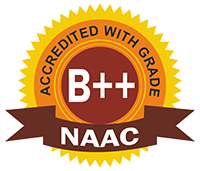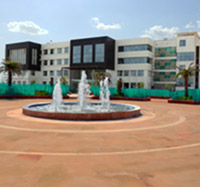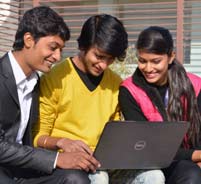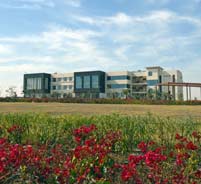Latest News:
- ABOUT RNBGU
- ADMISSIONS
- Schools
- ACADEMICS
- Strategic Plan and Deployment Documents
- Faculties and Schools
- Curriculum Design and Policy
- Syllabus
- Programme Outcomes
- Course Outcomes
- Examination and Evaluation
- Academic Calendar 2024-2025
- Board of Studies
- Academic Council
- Faculty Members
- Policies
- Committees
- ICT-Enabled Facilities
- Sanctioned Teaching Post
- MOOC Courses
- Doctoral Faculty Detail
- Indian Knowledge System (IKS)
- Gender Cell
- Teaching Learning Pedagogy
- NEP 2020 Implementation
- Teaching Outcome (Attainment)
- PROGRAMS
- Under Graduate Programs
- B.A. (Bachelor of Arts)
- B.Com. - 2025-26
- B.Com . (Hons) - 2025-26
- BBA (Marketing) - 2025-26
- BBA (Finance) - 2025-26
- BBA (Digital & Social Media Marketing) - 2025-26
- BBA (Human Resource Management) - 2025-26
- BBA (Foreign Trade) - 2025-26
- BBA (Bachelor of Business Administration) - 2025-26
- B.Tech. (Computer Science And Engineering)
- B.Tech. (CSE) Spl In Cyber Security & Forensics
- B.Tech. (CSE) Spl In Data Science & Analytics
- B.Tech. (CSE) Spl In AI & Machine Learning
- B.Sc. (Bachelor Of Science) - 2025-26
- B.Sc. (Biotechnology) - 2025-26
- B.Sc. (Hons) Agriculture
- BBA + LL.B. 2025-26
- B.A. + LL.B. 2025-26
- BCA (Bachelor of Computer Application)
- BCA-MCA Dual Degree - 2025-26
- LL.B. 2025-26
- Post Graduate Programs
- M.A. (English) - 2025-26
- M.A. (Economics) - 2025-26
- M.A. (Political Science) - 2025-26
- M.A. (History) - 2025-26
- M.A. (Public Administration) - 2025-26
- MBA - 2025-26
- MBA (Marketing) - 2025-26
- MBA (Finance) - 2025-26
- MBA (Digital Marketing & E-Business) - 2025-26
- MBA (Family Business & Entrepreneurship) - 2025-26
- M.Sc. (Biotechnology) - 2025-26
- M.Sc (Agronomy) - 2025-26
- M.Sc (Genetics & Plant Breeding) - 2025-26
- LL.M 2025-26
- MCA (Master of Computer Applications) - 2025-26
- Doctoral Programs
- Under Graduate Programs
- INFRASTRUCTURE
- Research & Incubation
- Library
- ERP Login
- NIRF
- Placements
- Campus Life
- Media
- Blog
- Career
- Contact Us
- Student Reviews
- NAAC
- Anti-Ragging
Indian Knowledge system
- To facilitate seamless integration of the Indian traditional knowledge system with subjects, an extensive SIP (Student Induction Programme) was organized across the university for the newly admitted students, where the importance of IKS in terms of Yoga, Indian Music, traditional fine arts, etc., is emphasized. RNBGU offers four credit courses like “Understanding Indian Knowledge System”, “Basics of Indian Constitution”, and “Indian Culture and Civilization”, etc., as general electives for multiple UG programs.
- Our university has made significant strides in incorporating the rich tapestry of the Indian knowledge system into its academic offerings, aligning with the principles outlined in the National Education Policy (NEP) 2020. By introducing Value Added Courses (VAC) that delve into various aspects of Indian philosophy, mathematics, science, musicology, law, and traditional knowledge systems, the institution is actively promoting a holistic educational experience. These courses, such as "Introduction to Indian Philosophy," "Vedic Maths Sutra: The Art of Indian Speed Calculation," and "Science and Technology in Ancient Indian Texts," not only showcase the depth of India's intellectual heritage but also contribute to fostering a deeper connection with our cultural roots.
- Moreover, by offering courses like "Bharatanatyam and Classical Dance Forms," the university is recognizing the importance of cultural expressions in education. The integration of Indian languages in teaching further enhances the accessibility of knowledge, making it more inclusive and reflective of our diverse linguistic landscape. By leveraging online courses, the university also embraces contemporary tools, ensuring flexibility and accessibility to a wider audience. These initiatives collectively demonstrate the institution's commitment to an educational approach that is culturally rooted, linguistically diverse, and technologically advanced.
- Faculty members are facilitated to attend the workshops and FDPs on the Indian Knowledge System to enhance their deep understanding of the concept. At the start of every academic session, the faculty members are sensitized to the bilingual mode of lecture delivery and are generous towards students having language difficulties.
- All the UG and PG programs run by the University are taught bilingually. The University facilitates students with a bilingual mode of teaching for a better understanding of the subject. Moreover, in the first semester of B Sc (Hons.) In agriculture, where most of the students come from a rural background, the question papers are printed in English and Hindi, and students are allowed to answer in any language in which they are comfortable.
- We offer ‘Indian Culture and Civilization’, a four-credit course as a General Elective, and ‘Yoga: Philosophy and Practice’, a two-credit course as a Value Added Course for all UG programs. The University has a cultural committee that organizes events at major Indian festivals. The cultural committee organizes events like Dholia (Navratri festival), Dhanteras Pooja, Christmas Celebration, Basant Panchmi, Kite festival on Makarsankranti, Janmashtami Poojan, etc.
- Some of the best practices are: teaching in bilingual mode and providing study materials and online resources in both English and Hindi to help bridge the gap between traditional and modern education. Integration of Indian Culture and Knowledge-based courses as open electives and organizing events that celebrate Indian festivals, traditions, and art forms for creating a vibrant cultural atmosphere. Teacher Training and Capacity Building in IKS to understand and integrate Indian Knowledge Systems into their teaching practices to ensure that they can effectively transmit this knowledge to students.









